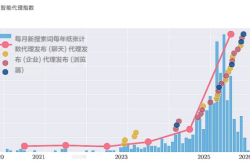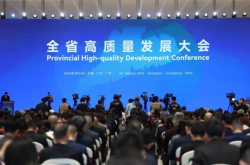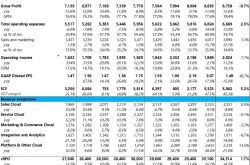LPR cuts again, banks batch adjust the interest rate of existing mortgage loans
![]() 10/25 2024
10/25 2024
![]() 759
759
Saving money on mortgage loans again!
On October 21, the Loan Prime Rate (LPR) was reduced, which will simultaneously drive down the interest rates of existing mortgage loans. As the LPR is directly related to the reduction of existing mortgage loan interest rates, it has become the focus of social attention. It not only affects the economic interests of thousands of households but also has a profound impact on the stability and development of the entire economy.
Shengma Finance notes that with the announcement of the LPR, the 1-year LPR is 3.10%, and the 5-year and above LPR is 3.60%, both down 0.25 percentage points from the previous levels. This adjustment marks the third decrease in the LPR since the beginning of the year, with the largest decline.
For borrowers with existing mortgage loans, this is undoubtedly great news. Mortgage loans, as one of the largest liabilities for many families, have a direct impact on their financial situation through interest rate adjustments. The reduction in existing mortgage loans will alleviate the economic burden on borrowers, unleash more consumption potential, and inject new vitality into economic recovery.

Third LPR cut this year
Since 2024, the economic situation has faced many challenges. To reduce financing costs, support the recovery of credit demand, and further enhance the momentum of consumption and investment growth, the People's Bank of China has adopted a series of proactive monetary policy measures, with the reduction of the LPR being an important part of these measures.
The reduction of existing mortgage loan interest rates is one of the key aspects of this LPR adjustment. According to announcements from major banks, for borrowers with existing floating-rate mortgage loans whose current interest rates are higher than the LPR minus 30 basis points, their mortgage interest rates will be uniformly adjusted to the LPR minus 30 basis points (excluding second-home loans in regions such as Beijing, Shanghai, and Shenzhen). Many banks have also indicated that they will proactively make batch adjustments starting from the 25th of this month.
The implementation of this policy means that the interest burden on borrowers of existing mortgage loans will be significantly reduced. Assuming a previous mortgage interest rate of 4.2%, after three reductions in the 5-year and above LPR since the beginning of the year (60 basis points), the mortgage interest rate will be adjusted to 3.6%. Coupled with the bank's unified adjustment on October 25th, the existing mortgage interest rate will be LPR minus 30BP, resulting in a repriced interest rate of 3.3%.
Taking a 1 million yuan, 30-year term, equal principal and interest mortgage loan as an example, the monthly repayment before the adjustment is approximately 4,890 yuan, while after the adjustment, it is approximately 4,379.6 yuan, saving about 510 yuan per month and a total of approximately 184,000 yuan in interest. This is undoubtedly a considerable financial gain for the vast majority of mortgage borrowers.
Prior to this, the first interest rate cut this year occurred on February 20th, when the 5-year LPR was reduced by 25 basis points, while the 1-year LPR remained unchanged. The second cut occurred on July 22nd, when both the 1-year and 5-year LPRs were reduced by 10 basis points. This time, the 5-year LPR was reduced by another 25 basis points, which means that within a year, the 5-year LPR has been reduced by a cumulative 60 basis points, setting a new historical record.
Industry insiders note that this interest rate cut, which reduces the interest rate by an additional 25 basis points from the already "historical low" for first-home mortgage loans nationwide, will once again set a new record low. Market expectations are expected to change comprehensively as a result.

Providing momentum for economic recovery
The reduction of existing mortgage loan interest rates has multifaceted impacts on the real estate market and the economy. Firstly, for the real estate market, it will reduce the repayment pressure on homebuyers, increase their willingness and ability to purchase homes, and promote the stable development of the real estate market.
More importantly, for the economy, it will unleash residents' consumption potential, increase their disposable income, promote the growth of consumption and investment, and provide momentum for economic recovery. This may also be one of the main considerations of policymakers.
In addition, the reduction of existing mortgage loan interest rates will also promote the further reduction of social financing costs. The decline in the LPR will drive down the interest rates of corporate and residential loans, contributing to a stable and moderate decline in social financing costs, expanding aggregate macroeconomic demand, supporting a reasonable recovery in prices, and driving stable growth in the real economy.
Shengma Finance notes that due to the varying conditions of the real estate market in different regions, the reduction of existing mortgage loan interest rates also exhibits different characteristics in different areas.
Taking Shanghai's first-home buyers as an example, due to the different repricing dates for loans, the 5-year and above LPR currently used for loans varies, with some buyers paying 3.85%, some 3.95%, and others 4.2%. This results in different overall interest rates. Although these existing mortgage loan interest rates are all calculated based on the LPR minus 30BP after adjustment, the final calculated interest rates will vary due to the different LPRs, with the lowest currently being 3.55%.
Furthermore, for those who are about to take out a mortgage loan to purchase a home, this LPR reduction means lower interest costs. When choosing a mortgage loan, they should fully consider their financial situation and repayment ability to select an appropriate loan term and repayment method. At the same time, they should pay attention to the bank's loan interest rate policies and choose a bank with a lower interest rate for the loan.
For borrowers of existing mortgage loans, it is important to pay attention to their loan contracts and understand the specific details of the repricing date. Before the repricing date arrives, they can plan their finances in advance to better prepare for the adjustment of mortgage loan interest rates. Additionally, they can consider making early repayments or partial repayments to reduce interest expenses. However, when making early repayments, they should be aware of any related fees such as penalties.
Shengma Finance believes that the reduction in the interest rates of existing mortgage loans is a demonstration of financial policy's concern for people's livelihood and strong support for the stable development of the economy. In the current economic situation, the reduction of the LPR and the adjustment of existing mortgage loans will inject new vitality into the recovery of the real estate market and the economy. There is reason to believe that with the continuous improvement of financial policies and the advancement of interest rate liberalization, the reduction of existing mortgage loan interest rates will bring more benefits to homebuyers and contribute more to the stable growth of the economy.
END
Follow us for more exciting content
Original content from Shengma Finance. Unauthorized reproduction is prohibited.








